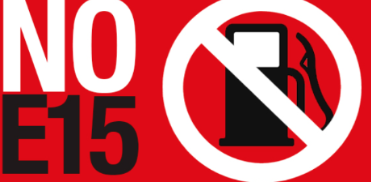NMMA, coalition groups urge EPA to reconsider year-round E15 sales

NMMA, the American Petroleum Institute (API), and the American Motorcyclist Association (AMA) joined together on a press call to express strong opposition to the Environmental Protection Agency’s (EPA) proposal to allow year-round sale of higher ethanol blended E15 gasoline. NMMA has repeatedly called on EPA to abandon its policy and encourages all stakeholders to submit comments to the EPA before the filing period ends tonight.
“We are not fighting against year-round E15 sales just for fun – we oppose EPA’s reckless proposal because it will increase the availability of a fuel that destroys marine engines and jeopardizes the safety of boaters,” said NMMA senior vice president of government and legal affairs Nicole Vasilaros. “With more than three in five Americans mistakenly assuming that any gas sold at gas stations is safe for all of their products, it is clear that the federal government has shirked its responsibility to effectively protect consumers from a fuel deemed so dangerous that its federally prohibited from being used in countless consumer products. And the last thing the government should do is pump more E15 into the fuel supply. Instead of jamming through a policy that almost nobody likes, EPA should focus on preventing consumers from misfuelling – including better labeling and stronger safeguards at the pump.”
“EPA’s decision to expand the sale of E15 gasoline to the summer months makes no sense,” said API vice president of downstream and industry operations Frank Macchiarola. “It is clearly contrary to the law and it reverses nearly 30 years of statutory interpretation from the agency. Studies have shown that E15 gasoline can damage vehicle engines and fuel systems – potentially leaving Americans with expensive car repair bills as a result of bad policy from Washington. In fact, nearly three out of four vehicles on the road today were not designed for E15.
“To make matters worse, the agency’s proposed changes to the RINs market could increase costs for fuel producers and lead to higher prices for consumers. Additionally, fuel producers who have complied with the law and have already made capital investments and business decisions based on the existing RFS and RINs program will be faced with uncertainty and a moving goal post.”




